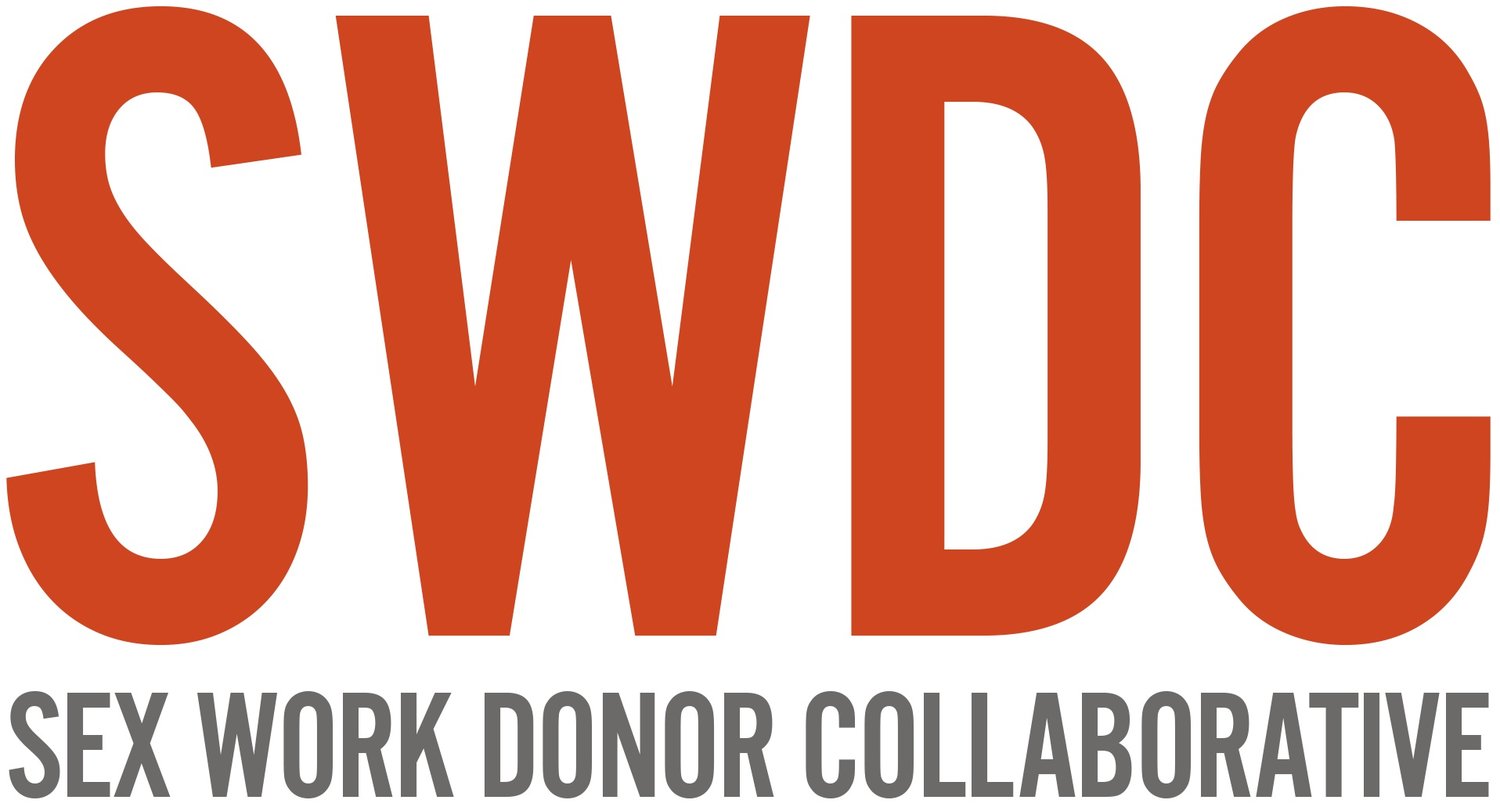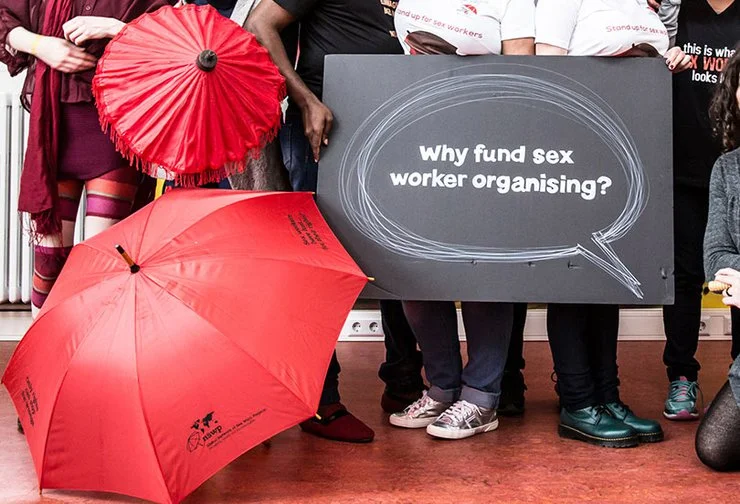“…it’s hard to collaborate when everyone who’s on the other side only want to talk about how we’re wrong. There needs to be a space for us to actually build that bridge in a way…” A private foundation funder interviewee.
In 2019, the Sex Work Donor Collaborative (SWDC) commissioned research to help us understand what data would make a stronger case to increase funding for sex worker rights.
The research, conducted by Strength In Numbers Consulting Group, analyzed 2017 grants collected by Candid and the Foundation Center that were tagged with the keyword “sex work.” 382 grants met this criterion, totaling $19.2 million, with 208 funders and 160 grantees. However, these data do not present a complete picture. The data collected were based on self-reporting, so no analysis was done about whether the funders or the grantees took a right-based approach or were working counter to human rights principles. Many of the major funders listed are not part of the SWDC, and one of the top funders is known to fund organizations that have violated the rights of sex workers.
Although Candid made particular efforts to include grants under $10,000 in these data, the dataset may still miss smaller funders that do not report their data to Candid (The Foundation Center merged with Candid in 2019) or donors who may not have tagged their grants in a way that their support could be detected using the keyword “sex work”. While these data remain limited for identifying grants for right-based work by and for sex workers, they do provide the most comprehensive and standardized data available in the field. In the future, it may be helpful to do a deeper review of grants within the Candid dataset or to collect data about rights-based funding separately to achieve an accurate picture. Advocacy and donor education could also be done with Candid or donors themselves to improve the usefulness of how grants are categorized related to sex worker rights.
Despite these limits, the quantitative data yielded important findings. Foundations giving the largest number of grants (though not the largest amounts) were public foundations, such as our members UHAI EASHRI, Red Umbrella Fund and Mama Cash. We know that this is an important, but much too limited source of funding for sex worker groups. Only a third of grants were tagged “general support,” showing how few foundations are investing in the sustainability of these organizations. Funders could also code population categories, and 59.2% of grants with the keyword “sex work” were coded to “victims of crime and abuse.” However, the largest amount of funding tagged “sex work” was also tagged with “LGBTQ rights,” and 21.7% of grants were also tagged with “labor rights.” These co-tags show how funder priorities have defined the streams of funding for sex worker groups. This quantitative data also revealed potential targets for our outreach – funders and fields with whom we can build bridges.
Qualitative data was also gathered from sex worker activists, allied feminist and anti-trafficking organizations, and non-governmental funders (both public and private). Our interviews with funders included our members and other funders who make and do not make grants for sex worker rights.
One important insight was that donors did not feel that data was the most pressing need to enable them to increase the amount and quality of funding for sex worker rights. Some donors that felt that sex worker organizations’ ability to tell powerful stories of their impact would be useful. One shared that sex workers should “move away saying that we need more resources, but more to, what, specifically we need more resources [to do].”
A key highlight of the research was that there is a tension from the funder perspective between the quiet integration of sex worker rights and the overt championing of sex worker rights. When some funders integrate sex worker rights, they recognize the intersectional struggles of sex workers, and use their institutional funding frames to include sex worker groups. This was indicated by some of the co-tagging. Some foundation staff saw a lot of promise in this approach, saying “I do think that most foundations are not going to have an explicit focus on sex worker rights organizing, or sex work per se. [But] within the work that they’re doing, there’s always room to build in support for sex worker rights organizing.”
But with rare exceptions, this integration approach is also fueled by the recognition that sex worker rights as a stand-alone frame would not be supported by their institution or may lead to push back from their own funders. One funder shared, “…the foundation will not support, directly, sex work as work, but if there’s something about LBT that has something to do with sex work, it is okay.” Other foundation staff clarified that this is not about fundamental disagreement, but about their funders’ reluctance to be associated publicly associated with the cause. “[They] don’t care if [we] fund sex work, as long as [we] can be more secretive about it.” This staffer clarified that their funders would not support them galvanizing other funders in support of sex worker rights. Another stated, “It’s explicitly in the budget, earmarked for [sex worker rights]. They’re okay with that, but wouldn’t want it to be public.” Even a funder network staff reflected this attitude, saying “We don’t want to alienate any funder [by taking a position on sex worker rights], for example, and so we wouldn’t write down anything except for the fact that we’re explicitly rights-based and feminist.” Thus, the laudable integration of sex worker rights into portfolios and larger frames is also a way of hiding and avoiding a more direct conversation about the human rights of sex workers.
We believe this strategy is reacting to and re-enforcing stigma, and a lack of funder champions – even if it is successful in moving money to the cause. We are concerned that this strategy ultimately contributes to the precarity of funding for sex worker groups. It means their achievements can’t be elevated or shared. It means these groups can never “graduate” from receiving smaller grants, often through public foundations, to receiving larger grants from private foundations. It also means foundation staff facing these barriers have no space within their own institutions to grapple with these issues.
This finding is important for the goals and strategies of the SWDC. Funders that do not support sex worker rights overtly also expressed a nervousness to engage with an entity like the SWDC. The SWDC requires members to sign a mission and values statement that recognizes the self-determination of sex workers and opposes the criminalization of sex work. In that same vein, funders likely see joining the SWDC as taking a public stance in support of these values. The SWDC was established to create a collaborative space for funders who agree with these values, but our structure may be excluding a set of funders who are currently funding sex worker rights in an understated manner or are aspiring to fund sex worker rights. That means we are missing out on their perspective and creativity as we advance our work.
This research has led to the SWDC examining what strategies can be developed to enable our Collaborative to both hold a clear position that affirms sex worker rights, while still creating welcoming mechanisms to reach allies. The SWDC is in the process of thinking about our next steps, including what the next phase of our research might entail. We invite questions and engagement from other funders throughout this process, as we continue to build a community of solidarity.
















